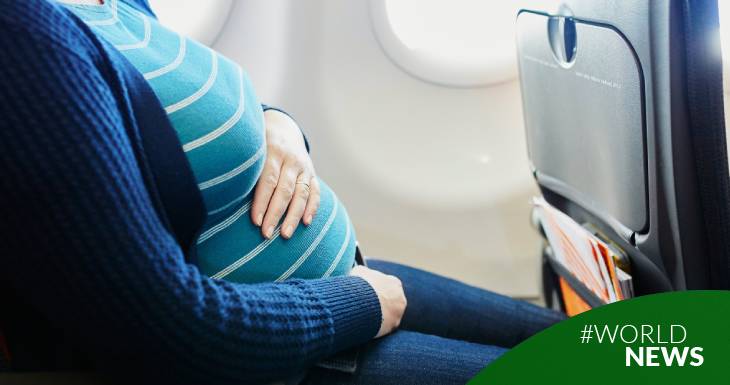Although births on airplanes are unlikely, since airlines usually have rules to prevent it, there are approximately 70 people around the world known as skyborns or "born in the sky."
These mid-air births were mostly unexpected, and they are premature babies. And although there are no official figures, it is estimated that since the beginning of commercial flights in 1929, until 2020, approximately 76 children have been born on board an aircraft.
Regulations regarding pregnant passengers vary by airline, with some refusing to transport women after 36 weeks of gestation and others accepting up to 40 weeks.
What happens to the nationality of the baby born on a plane?
The nationality of a baby born on a flight does not have a universal answer, since it depends on the laws of each country.
Basically, there are two principles: the ius sanguinis (“right of blood”) which implies that the child receives parents nationality; and the ius soli (“right of the land”) establishes that the baby born on a flight takes the nationality of the flying over territory, due to the absence of a defined national territory.
And here another problem arises: most of the planet is covered by seas that do not belong to any nation. What happens if a baby is born on top of one of them? At that moment, the plane's country of origin emerges.
According to the 1961 Convention on International Civil Aviation, an aircraft is linked to the country in which it is legally registered, therefore it would receive the nationality of the country to which the airline belongs. However, this is nothing more than a technicality, since in most cases, the child receives the parents nationality through the ius sanguinis convention, regardless of where the birth occurs.
Finally, the legal status of an airplane baby can be influenced by the plane's landing location and bilateral or multilateral agreements between the countries involved. In some cases, nationality of the country where the emergency landing is made may be granted, especially if the baby's life is in danger.
The nationality of babies born on airplanes is a complex issue that can vary depending on national legislation and individual circumstances. And while the Chicago Convention provides general guidance, the interpretation and application of nationality laws can differ between countries.
Free flights for life?
It is a myth Airlines and authorities generally do not provide additional benefits beyond in-flight emergency medical assistance and legal birth registration under applicable laws. Any additional benefits, such as flight discounts, frequent flyer programs or other privileges, will be determined by airline policies and the specific conditions of each case.


